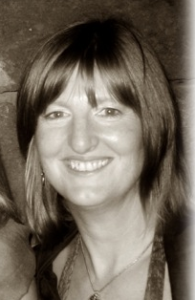While the world’s cricket teams battled it out on the fields of Bangladesh in the ICC 20:20 series, I, too, was facing my own battles, wondering what on earth I was doing here for five nights at the end of this incredible sabbatical.
I had been so warmly welcomed by Brigadier General Golam Zakaria and his wife, met off the plane and whisked to the VIP lounge, bypassing the long queues at immigration and customs, and driven to their home through the dusty streets of Dhaka.

Dhaka. Never before had I seen her streets, and yet they were all so devastatingly familiar: the children selling peanuts and roses between the jostling rows of cars, motorbikes, rickshaws and busses at each impatient junction; the luxury hotels and businesses vying for space with the shoddy apartments, one-room factories, and the multitudes whose homes waited patiently, wrapped in tarpaulins at the sides of the roads; the dust, the noise, the chaos, the pollution.
And, alongside all that, the colour, the life, the flavours and smells. I was back in Asia. Yet something in me was unsettled. And my body and spirit chose to rebel.
Unusually for me, it was my gastro-intestinal tract that was the first to strike – staging an all-out violent revolution that left me, 36 hours and three toilet rolls later, feeling washed out and longing for home.
But the bigger battle was coming face to face, once again, with the stark realities of wealth and privilege, poverty, and futility. Why was I, with all my years of visiting Asia, finding this so hard?
I had been treated, on my first full day, to a personal tour of one of the Capital’s finest private hospitals: its cleanliness, efficiency and resources rivalling any in the West. The privileged haven of Bangladesh’s elite few, proudly displaying its grandeur, and, at the same time, offering small charities to many in need.
That evening, after a wonderful meal at the golf club restaurant (the probable source of my alimentary rebellion), I was treated to even more rich fare at the home of the chief executive of the hospital and their linked pharma corporation. In luxurious surroundings, I heard of the wonderful achievements of the hospital and pharmaceuticals, of their plans for further expansion, of their links with prestigious institutions elsewhere, and of their magnanimous acts of charity – like many in this country, using their wealth, both personal and corporate, for the good of their fellow-citizens. Philanthropy is such a strong ethos here, followed with equal diligence to the other pillars of their faith.
And meanwhile, my friend Nasreen’s brother, lay unconscious on the intensive care unit of that same hospital, ventilated with ARDS following a pulmonary embolism, while the whole family gathered in distress, wondering what to do next, having used all their resources to pay for the first eleven days of treatment.
Was it only the pending gastroenteritis that left the sumptuous food tasting bland in my mouth?
But who am I to criticise? I who have been paraded throughout these few days as an eminent professor of paediatrics who works tirelessly on behalf of the poor all around the world; lauded as a great philanthropist; brought out to a small village to run a sham clinic, dishing out placebo vitamins and worm tablets to 62 undernourished, but otherwise healthy village children; asked to give my blessing and advice to the numerous small projects set up by those who genuinely want to serve and help the poor?
Perhaps I could just keep up the pretence; continue to fool others, if not myself, that I really am a great hero, and that everything I do really is making a difference.
But it doesn’t make a difference. Not to the sixty two children I saw on Friday morning, most of whom will never complete school, and have no long term hopes of meaningful employment. Not to the fourteen year old child-bride who served me roti with coconut. Not to the old lady, with no possessions but the sari she stood in as she knocked desperately at the window of our air-conditioned car.






